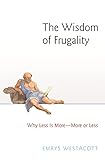The Wisdom of Frugality : Why Less Is More - More or Less / Emrys Westacott.
Material type: TextPublisher: Princeton, NJ : Princeton University Press, [2016]Copyright date: ©2018Description: 1 online resource (328 p.) : 2 b/w illusContent type:
TextPublisher: Princeton, NJ : Princeton University Press, [2016]Copyright date: ©2018Description: 1 online resource (328 p.) : 2 b/w illusContent type: - 9780691155081
- 9781400883301
- Simplicity
- Thriftiness
- PHILOSOPHY / Ethics & Moral Philosophy
- Admiration
- Americans
- Asceticism
- Boredom
- Callicles
- Capitalism
- Career
- Clothing
- Commodity
- Consideration
- Conspicuous consumption
- Consumerism
- Consumption (economics)
- Contentment
- Credit card debt
- Criticism
- Debt
- Demand
- Distrust
- Ecological footprint
- Economic growth
- Economics
- Economist
- Economy
- Employment
- Entrepreneurship
- Environmental protection
- Epicureanism
- Epicurus
- Ethics
- Frugality
- Generosity
- Gratitude
- Greed
- Harmony with nature
- Hedonic treadmill
- Household
- Hypocrisy
- Income
- Individualism
- Indulgence
- Industrialisation
- Involuntary unemployment
- Jean-Jacques Rousseau
- John Maynard Keynes
- Juliet Schor
- Literature
- Luxury goods
- Make A Difference
- Meal
- Modernity
- Moral character
- Morality
- National Endowment for the Humanities
- Natural environment
- Pension
- Philosopher
- Philosophy
- Pity
- Politician
- Poverty
- Public good
- Real estate appraisal
- Real estate bubble
- Reason
- Recreation
- Recycling
- Religion
- Republic (Plato)
- Romanticism
- Saving
- Self-Reliance
- Self-control
- Self-help book
- Self-interest
- Self-sufficiency
- Simple living
- Skepticism
- Social commentary
- Social status
- Sophistication
- Standard of living
- Stoicism
- Suggestion
- Superiority (short story)
- Supermarket
- Sut Jhally
- Tax
- Technology
- The Other Hand
- Tranquillity
- Unemployment
- Utilitarianism
- Utopia
- Vegetable
- Virtue ethics
- Wealth
- Welfare
- Well-being
- Work ethic
- online - DeGruyter
| Item type | Current library | Call number | URL | Status | Notes | Barcode | |
|---|---|---|---|---|---|---|---|
 eBook
eBook
|
Biblioteca "Angelicum" Pont. Univ. S.Tommaso d'Aquino Nuvola online | online - DeGruyter (Browse shelf(Opens below)) | Online access | Not for loan (Accesso limitato) | Accesso per gli utenti autorizzati / Access for authorized users | (dgr)9781400883301 |
Browsing Biblioteca "Angelicum" Pont. Univ. S.Tommaso d'Aquino shelves, Shelving location: Nuvola online Close shelf browser (Hides shelf browser)

|

|

|

|

|

|

|
||
| online - DeGruyter Game of Loans : The Rhetoric and Reality of Student Debt / | online - DeGruyter Reading Cy Twombly : Poetry in Paint / | online - DeGruyter Fraud : An American History from Barnum to Madoff / | online - DeGruyter The Wisdom of Frugality : Why Less Is More - More or Less / | online - DeGruyter The Quotable Machiavelli / | online - DeGruyter Ireland's Immortals : A History of the Gods of Irish Myth / | online - DeGruyter The Euro and the Battle of Ideas / |
Frontmatter -- Contents -- Introduction -- 1. What is Simplicity? -- 2. Why simple Living Is Supposed to Improve Us -- 3. Why Simple Living Is Thought to Make Us Happier -- 4. Why the Philosophy of Frugality Is a Hard Sell -- 5. The Pros and Cons of Extravagance -- 6. The Philosophy of Frugality in a Modern Economy -- 7. The Environmentalist Case for Simple Living -- Conclusion -- Acknowledgments -- Notes -- Index
restricted access online access with authorization star
http://purl.org/coar/access_right/c_16ec
From Socrates to Thoreau, most philosophers, moralists, and religious leaders have seen frugality as a virtue and have associated simple living with wisdom, integrity, and happiness. But why? And are they right? Is a taste for luxury fundamentally misguided? If one has the means to be a spendthrift, is it foolish or reprehensible to be extravagant?In this book, Emrys Westacott examines why, for more than two millennia, so many philosophers and people with a reputation for wisdom have been advocating frugality and simple living as the key to the good life. He also looks at why most people have ignored them, but argues that, in a world facing environmental crisis, it may finally be time to listen to the advocates of a simpler way of life.The Wisdom of Frugality explores what simplicity means, why it's supposed to make us better and happier, and why, despite its benefits, it has always been such a hard sell. The book looks not only at the arguments in favor of living frugally and simply, but also at the case that can be made for luxury and extravagance, including the idea that modern economies require lots of getting and spending.A philosophically informed reflection rather than a polemic, The Wisdom of Frugality ultimately argues that we will be better off—as individuals and as a society—if we move away from the materialistic individualism that currently rules.
Mode of access: Internet via World Wide Web.
In English.
Description based on online resource; title from PDF title page (publisher's Web site, viewed 01. Dez 2022)


